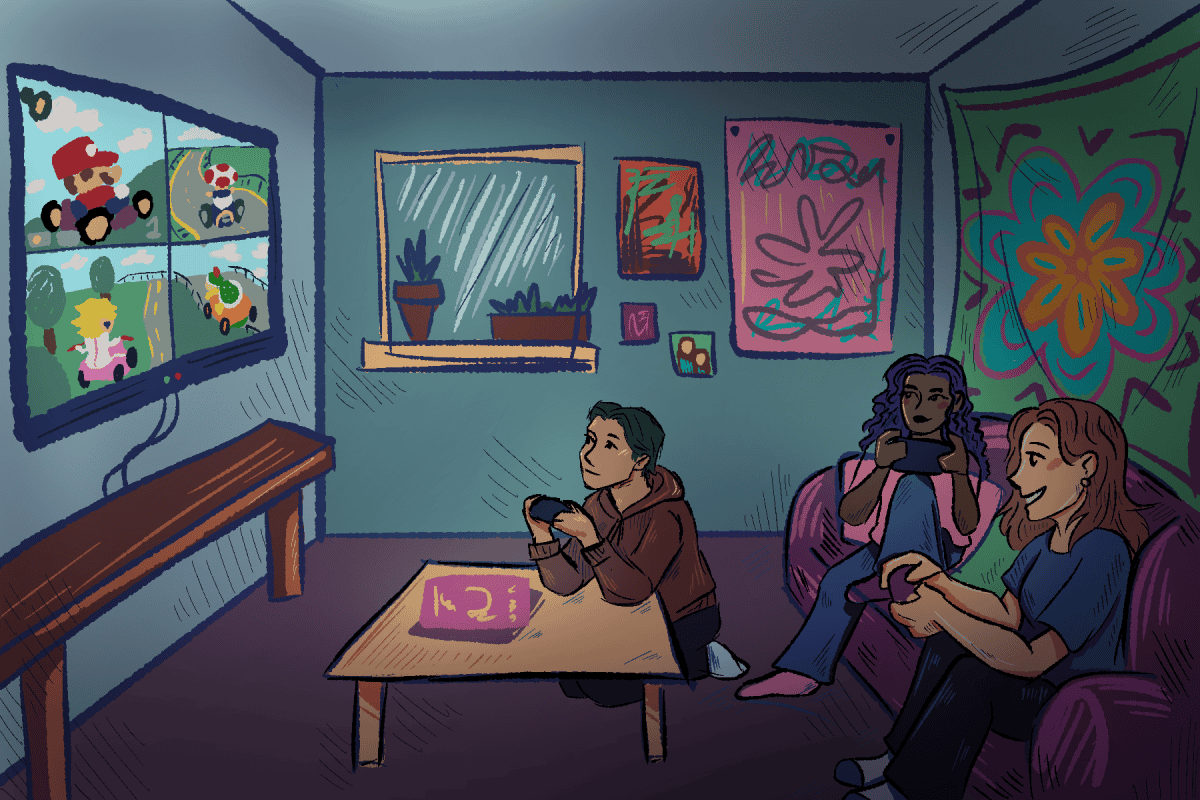As a film, “The Lovely Bones” certainly wants to have it all. It makes an attempt at both tragedy and comedy. It presents sequences of both heightened suspense and tempered stoicism. It tries to balance the intimacy of a family drama with overwrought, CGI-crafted spectacle, and it counters plotlines of grim realism with undercurrents of escapist fantasy.
Director Peter Jackson’s attempt to bring all these aspects together in “The Lovely Bones” is undeniably ambitious and admittedly unique, but it’s a failed attempt as well. The result is a movie that’s entirely inconsistent and occasionally inexplicable.
The movie opens to the voice-over narration of protagonist Susie Salmon (Saoirse Ronan). After joking about her last name (“like the fish,” we’re told), she proceeds to inform us: “On December 6, 1973, I was murdered. I was 14 years old.”
We’re soon given the details of that event, leaving the aftermath of the crime for the film to address. There’s Susie’s family, who find themselves at odds regarding how to cope with the tragedy. There’s Susie’s murderer (Stanley Tucci), a pedophiliac neighbor who eludes an investigation by the police but not the suspicion of Susie’s family.
And then there’s Susie herself. She’s trapped in what the film refers to as “the in-between.” It’s a constantly shifting purgatory of sorts, by turns both reassuring and unsettling. From here she looks down on the world she has left behind and observes the effect of her death on those she once knew.
Perhaps the film’s sole virtue can be found in its performances, principally that of veteran actor Stanley Tucci. He is convincing as Susie’s murderer, and the scene in which he lures Susie into an isolated setting is easily the film’s most effective. A chilling shift in Tucci’s character can be observed during the sequence, as he transitions from foreboding awkwardness to outright deviance.
But then there are the film’s problems — namely its uncertain tone. “The Lovely Bones” is wildly erratic, often following moments of sincere emotion with crude attempts at levity.
Consider a sequence that occurs roughly halfway through the film, in which an earnest attempt at depicting a grieving family’s fragility is immediately followed by an overdone montage intended for comedic effect. At times like this, it almost seems as if the film is caught in an “in-between” of its own, unable to decide which dramatic course it wants to pursue. And the resulting dissonance can be positively baffling.
Such frequent contradictions only serve to herald the more abstract paradox found within “The Lovely Bones.” On one hand, the film wants to address very real emotions; it seeks to examine the pain, guilt, and frustration that arise from unexpected loss. Yet the movie ultimately sabotages its own efforts with its competing idealism. As we watch Susie enjoy the grandeur of the “in-between,” it becomes increasingly hard not to feel as if the film is avoiding the more gruesome reality of her rape/murder — even as it exploits the crime for cheap melodrama.
It should be mentioned that the film takes a somewhat unusual approach regarding its portrayal of that crime’s former component, as it avoids the subject all together. “Rape” is never mentioned in the film — not by the family, the police, or Susie herself. Instead, the movie chooses to imply its occurrence in an indirect manner — a manner not so much subtle as it is belittling.
While one could assume that this decision was made primarily to assure a PG-13 rating (something at which the film unquestionably succeeds), the movie’s refusal to address the issue allows for an ironic articulation of its central flaw: “The Lovely Bones” wants very desperately to be taken as a serious film—as long as it doesn’t take itself seriously in return.
Rating: 1 ½ out of four Bottom Line: “The Lovely Bones” does not maintain a steady tone, a problem exacerbated by the need for better handling of its serious subject matter. It’s a shame these problems drown out excellent performances, especially that of Stanley Tucci.






